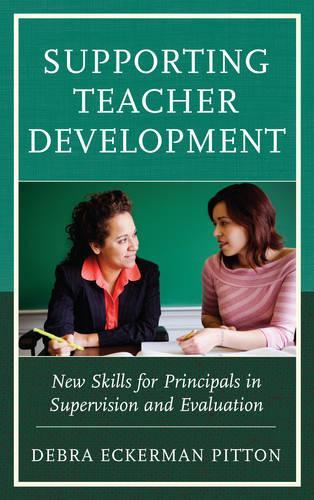
Supporting Teacher Development: New Skills for Principals in Supervision and Evaluation
(Hardback)
Available Formats
Publishing Details
Supporting Teacher Development: New Skills for Principals in Supervision and Evaluation
By (Author) Debra Eckerman Pitton
Bloomsbury Publishing PLC
Rowman & Littlefield Publishers
26th April 2016
United States
Classifications
Professional and Scholarly
Non Fiction
Educational strategies and policy
370.711
Physical Properties
Hardback
128
Width 159mm, Height 238mm, Spine 15mm
386g
Description
This text provides opportunities for administrators to use evaluation processes more effectively to support teacher development. Through the use of practice scenarios and communication exercises, principals can develop a more supportive, relational process for teacher evaluation. Too often principals provide evaluation feedback in ways that do not resonate with teachers. This text examines the communicative process and provides practice and skill-building opportunities that will enable principals to develop supportive environments that help teachers continue to grow.
Reviews
As a Middle School Principal, I work with teachers daily, by meeting them where they are and providing guidance and gentle pressure to further advance their expertise. Providing immediate feedback that is laser focused on student success, is key. Giving the right feedback, in a mentor/coaching role allows for reflection in a non-threatening learning culture. We are all learners. "All Students Succeed" is not about judgment on teachers. It's being honest with where we are at with our professional work and having the mindset to always strive to get better. On a continuum of continual growth, mentoring skills for principals are essential as part of every schools learning culture. This book is a resource for principals seeking ways to support and mentor their faculty in order to facilitate increased student learning. -- Brenda Vatthauer, principal, Lincoln Park Middle School, Duluth, Minnesota
Dr. Pitton addresses key elements in the mentoring process that facilitate teacher evaluation and impact student achievement. The examples provided by the verbal and nonverbal communication and its evaluation and the use of exact language can provide a starting point for better understanding how communication can be interpreted differently by the parties involved. Teacher evaluations are a critical piece in improving student achievement and a shared evaluation process between the teacher and evaluator, as identified in this book, is essential. -- Doug Warring, PhD, Professor, College of Education, Leadership, and Counseling, St. Thomas University, Minneapolis, MN
Author Bio
Debra Eckerman Pitton, Ph.D., has been a middle and high school language arts teacher, an elected school board member and school administrator. Currently she serves as Chair and teaches in the Education Department at Gustavus Adolphus College in St. Peter, MN, where she works with beginning teaches and supports mentoring and induction programs for educators.
